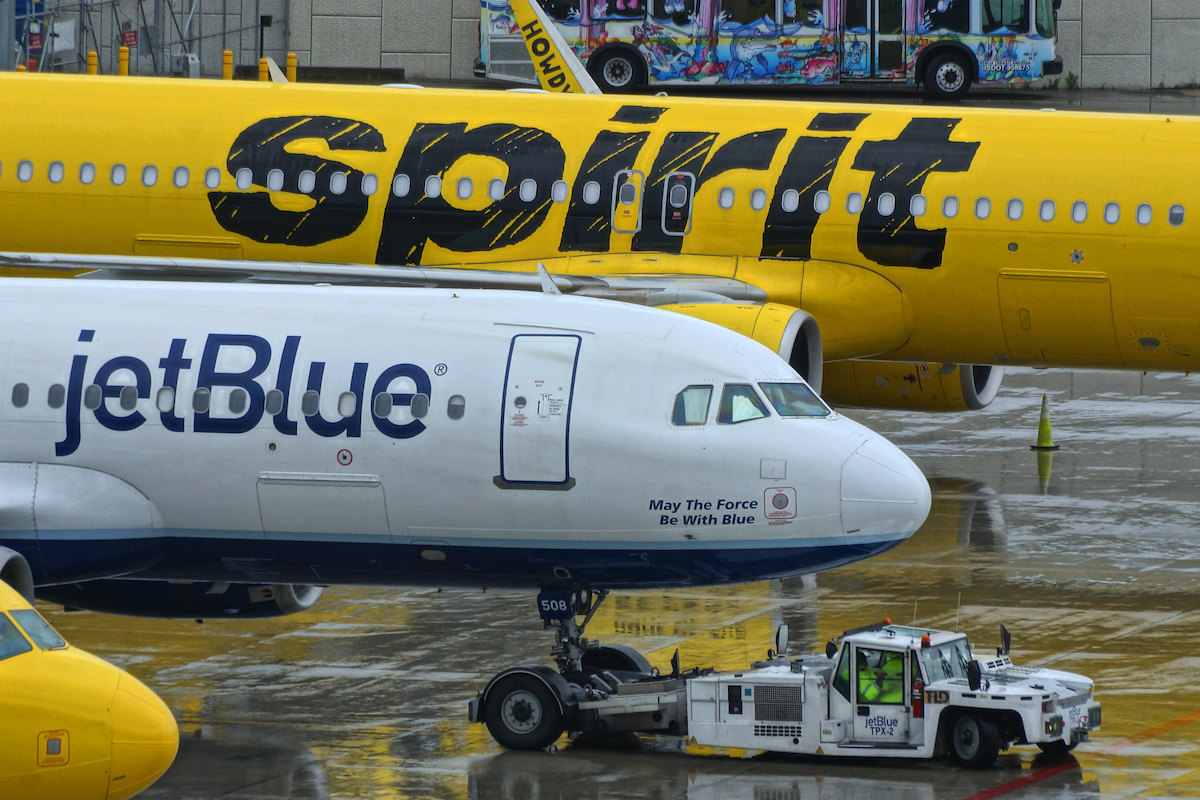JetBlue Would Raise Spirit Airfares by as Much as 40%: Report

Skift Take
JetBlue Airways plans to raise airfares on routes flown by Spirit Airlines by as much as 40% if the carriers' proposed merger goes through, a new report citing company estimates found.
The New York-based carrier would raise fares between 24% and 40%, according to a report by Law360 citing documents released as part of a pending court case. The documents were inaccurately redacted by the plaintiffs in the case — not the airline — according to the report. The lawsuit was brought by travelers seeking to block JetBlue's $3.6 billion takeover of Spirit, and is separate from the U.S. Department of Justice's suit to stop the merger.
"There is direct evidence in the form of party admissions that the merger will have anticompetitive effects," the travel
